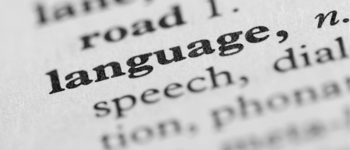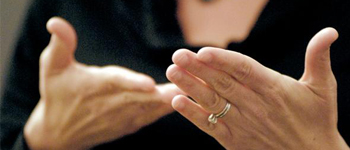FAQs
Student Focused FAQs
The UNM Signed Language Interpreting program accepts applications to the program each year in the spring. Candidates are accepted into the program after a personal interview with program faculty. Each year we accept approximately 15 new majors into the program.
A complete application packet is available from the Administrative Assistant. Click here to acces the online application.
Please note our new policy: Effective June 2013, students are permitted a maximum of two attempts to apply and interview for acceptance to the major in Signed Language Interpreting. Students are strongly encouraged to apply for the program as soon as they have completed the pre-requisites (English 1120, SIGN 2125, SIGN 2210, SIGN 2130 and be eligible to transfer to the College of Arts & Sciences).
In state transfer: Must take SIGN 2125-Introduction to Signed Language regardless of previous college credits. Please see this form for the minimum credits that UNM requires to acquire a UNM undergraduate degree: https://admissions.unm.edu/assets/documents/transfer-plan-outline.pdf
Yes, but Signed Language Interpreting must be listed first in the degree plan. Please note that if your second major is not in Arts and Sciences, then contact your advisor to see if you are allowed to double major.
Please contact the Program Director for more information or email us at sign@unm.edu
Our email address is, sign@unm.edu and our offices are located in the UAEC building. Please refer to the Welcome Section for directions on how to find us in the UAEC.
Professional Focused FAQs
No. The program has a strong commitment to preparing the best possible interpreters, and we believe that the students in the program are not ready to be working interpreters. In order to maintain the integrity of our program curriculum, and to ensure that the deaf community has only the best qualified interpreters, we ask that our students do not work as interpreters until they have successfully graduated from the program. See our policy on student interpreting here: policy-on-student-interpreting.html, and view the NM Signed Language Interpreting Licensure Statute for more information here: licensure
Our program has an outstanding history of preparing entry level interpreters who are ready to take and successfully pass the Registry of Interpreters for the Deaf written examination. Our graduates also go on to pass RID, the BEI, the EIPA, and various state certification examinations.
Graduates of the Signed Language Interpreting Program obtain jobs as freelance interpreters, educational interpreters, and as full-time interpreters in the public and private sectors. Educational agencies across the country routinely recruit our graduates. A new and exciting market for our interpreters is Video Relay Service (VRS) and Video Remote Interpreting (VRI).
Because our program confers a baccalaureate degree, graduates often go on to obtain graduate degrees in interpreting and other fields. Many of our former students now hold Masters and Doctoral degrees, as well as J.D.s and M.D.s.Yes, we are accredited by The Commission on Collegiate Interpreter Education (CCIE). Our program was accredited in 2013 and reaccredited in 2024.



